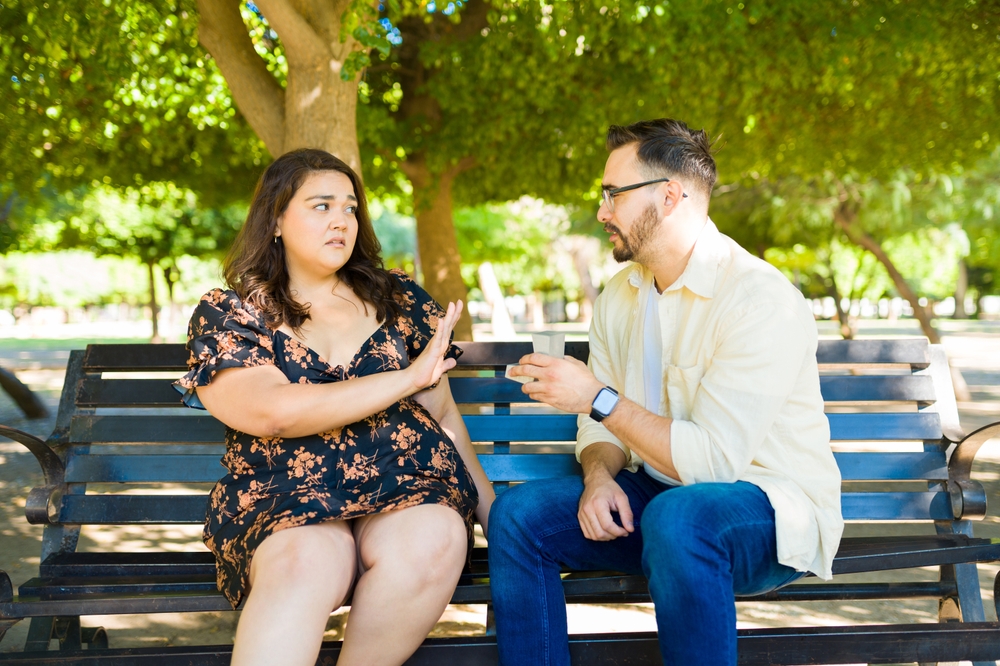12 Common Red Flags to Watch for in New Friendships
It always feels good to meet someone new who seems kind and relatable. Yet, some friendships can slowly reveal unhealthy dynamics beneath the surface. Knowing how to recognize red flags early helps prevent emotional strain and disappointment.
This post may contain affiliate links, which helps keep this content free. Please read our disclosure for more info.
They Talk About Others Constantly

If a new friend frequently talks negatively about others, it might be a sign that they could eventually speak the same way about you. Gossip often reveals how someone handles trust and respect in relationships. A person who shares private details about others may not value confidentiality. It is wise to pay attention to what kind of conversations they enjoy having.
Healthy friendships are built on kindness and respect. If most of your conversations revolve around other people’s problems, that is not a good foundation. Try changing the topic and see how they react. Someone who respects boundaries will understand and adjust naturally.
They Rarely Apologize

A friend who avoids admitting mistakes may struggle to take responsibility for their actions. This can create tension when disagreements occur. Refusing to apologize shows a lack of self-awareness and empathy. Over time, this can make the friendship feel one-sided and frustrating.
A sincere apology is part of emotional maturity. Pay attention to how your friend responds when you express hurt or disappointment. A healthy friend will acknowledge your feelings and work to make things right. Consistent avoidance is a sign to step back.
They Dismiss Your Feelings

When someone brushes off your emotions or laughs when you are upset, it shows a lack of care. This can make you feel unseen or unimportant. Emotional support is essential in a good friendship. Everyone deserves to be heard and validated.
If you often leave conversations feeling worse instead of better, take note. People who value you will listen and try to understand, even if they do not fully agree. You should not feel like you must hide your feelings to keep peace. Healthy communication builds trust and comfort.
They Make Everything About Themselves

If your conversations always return to their problems or achievements, that can be draining. Self-centered people often struggle to show interest in others’ lives. They might interrupt, ignore, or shift the focus back to themselves. This leaves you feeling unheard.
Friendship should be mutual, where both people share and listen equally. If you notice that your friend never asks about your life, it is a sign of imbalance. Over time, such friendships feel emotionally empty. Value people who show genuine interest in your well-being.
They Constantly Cancel Plans

Unreliable friends can cause disappointment, especially when they cancel plans at the last minute. While everyone gets busy sometimes, consistent cancellations show disregard for your time. This behavior creates instability in the friendship. It can also make you feel like an afterthought.
Good friends make an effort to follow through with their commitments. If someone always has an excuse, it might be time to reevaluate the relationship. A pattern of broken plans suggests they may not value your presence. Your time and energy deserve respect.
They Pressure You to Share Too Much

Trust takes time to build, but some people push for personal details too quickly. They may ask questions that feel intrusive or uncomfortable. This can be a tactic to gain control or test your boundaries. It is okay to share only what feels right for you.
Healthy friendships develop gradually. A real friend understands that closeness grows over time. If someone rushes your trust, it might not be genuine interest. Respect your own comfort level and avoid feeling pressured to overshare.
They Never Support You

Support is one of the strongest signs of a good friendship. If your friend ignores your goals, achievements, or struggles, it shows disinterest. They may even downplay your accomplishments to make themselves feel better. This can leave you feeling isolated or undervalued.
A supportive friend celebrates your milestones and stands by you during setbacks. If someone does the opposite, the relationship lacks balance. You should not have to earn their encouragement. Genuine care is shown through consistent kindness, not occasional praise.
They Make You Feel Drained

If you feel exhausted after spending time with someone, that could be a sign of emotional imbalance. Constant negativity or complaining can weigh you down. Over time, your energy and mood may decline around them. Friendships should bring comfort, not stress.
Notice how you feel after every interaction. A positive friendship leaves you feeling relaxed and happy. If you often feel tense or emotionally tired, trust that instinct. Healthy connections nurture your energy rather than drain it.
They Talk Badly About Their Other Friends

How someone treats others says a lot about how they will treat you. If they constantly criticize their other friends, it might mean they enjoy drama. That kind of attitude can make you wonder what they say about you when you are not around. It reveals a pattern of gossip and disloyalty.
Healthy people lift others up instead of tearing them down. If your new friend’s stories always end negatively, be cautious. Their behavior might eventually affect your trust. Choose friendships that are kind and drama-free.
They Get Angry When You Say No

If a friend becomes upset when you refuse a request, that is a clear warning sign. It shows they might expect you to prioritize their needs over your own. Anger or guilt-tripping after a simple “no” signals manipulation. This kind of reaction can make you feel controlled or uncomfortable.
Healthy friendships allow space for personal boundaries. Saying no should never cause conflict or fear. A respectful friend will understand and accept your limits. Pay attention to those who make you feel guilty for setting boundaries.
They Avoid Responsibility

People who never admit when they are wrong often shift blame onto others. This can create tension and confusion, especially during conflicts. Avoiding responsibility prevents problems from being resolved properly. It can also make you question your own feelings or memories.
Mature friends take ownership of their behavior. If someone constantly points fingers, they are not interested in growth. This pattern can lead to emotional exhaustion. Friendships thrive when both sides take responsibility and communicate honestly.
They Disappear When You Need Them

A friend who vanishes during your hardest moments is showing where their priorities lie. When things are easy, they may be present, but during challenges, they vanish without concern. This inconsistency can make you question their loyalty. It reveals a lack of emotional reliability.
True friends offer support when you need it most. Even small gestures, like checking in, show that they care. If your friend always avoids difficult times, the friendship may not be genuine. Surround yourself with people who stay through both highs and lows.
This article originally appeared on Avocadu.
